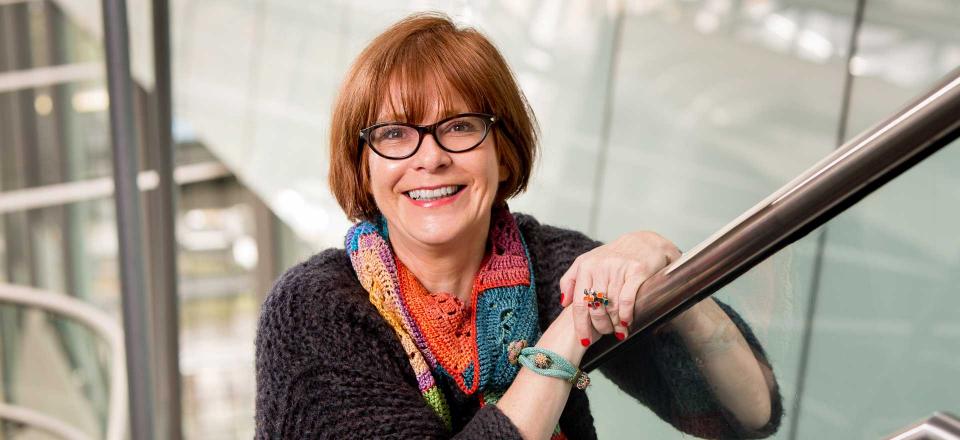Women of Bio21 - Uta Wille

Tell us about your research?
I love radicals. The environment is a gigantic chemical reactor with the sun as an energy source, where radical chemistry is constantly happening. Together with my research group we are working on gaining a better understanding of damage in biological and manufactured materials caused by environmental free radical oxidants.
What did you want to be growing up?
As a child I wanted to become a pirate (I’ve been a huge fan of Pippi Longstocking – she really has been my role model). Growing up, I wanted to become a musician. I’ve played flute in several youth symphony orchestras, loved everything about it and seriously thought about making this my career. After finishing school, I did a reality check by imagining a future where I might need to perform Wagner operas every night (they are really long!) in a second-tier orchestra. This thought really scared me, and I abandoned the idea of becoming a professional musician (although I still want to be an opera singer in my next life). My relationship with science during school was neutral, I neither hated or loved it, perhaps growing up in a science-friendly household with a physicist as father had something to with it. More out of desperation than interest I started to study chemistry (University of Kiel, Germany), but since my background in chemistry from school was not particularly strong, the first two semesters were really hard. It turned out that hard work and constant studying paid off. After the “Vordiplom”, when the different areas in chemistry grew together to form a tight network of “Chemistry”, I totally fell in love with it and could not imagine doing anything other than chemistry. Today, my flute is packed away in its case, collecting dust.
A key challenge you’ve faced?
Number 1: I did my PhD in physical chemistry in a research group with many men and very, very few women. My supervisor (imagine a ‘typical elderly German professor’) possibly thought that I, being a woman, might be the weak link in his group where he could dump his frustration. Rather than despairing, I decided to confront him with his unfair treatment of me. Although I needed to repeat this “exercise” a couple of times during my candidature, in the end I believe that by stepping up to him and telling him that his behaviour is unacceptable, I earned his respect, and he became very supportive.
Number 2: My Habilitation (see below).
What achievement are you most proud of?
Until recently, a “Habilitation” has been the prerequisite for becoming a university professor in the German academic system. After my PhD I was offered a position for a Habilitation in organic chemistry. Establishing an independent research project in an area entirely different from my Diploma and PhD research without considerable support or mentorship and successfully completing my Habilitation is possibly my greatest achievement.
What do you hope for women in STEM?
I really hope that in the not too distant future we do not need to discuss “women in STEM” anymore, because STEM means that women and men will be on an equal footing. But until this is the reality, the careers of women need to be supported as much as possible, including ‘women-only’ positions in academia.
Who inspires you most?
Any woman, who fights her way through and succeeds, against all odds.
What is your passion/hobby/interest outside of work?
Arts&crafts. I have a whole room in our house with fabrics, sewing machines, yarn, beads, glass and a kiln for making clothes and jewelry. This is my ‘zen’, which keeps me sane, with the help of my family (my 13-year old daughter Antonia and my husband Jan).

